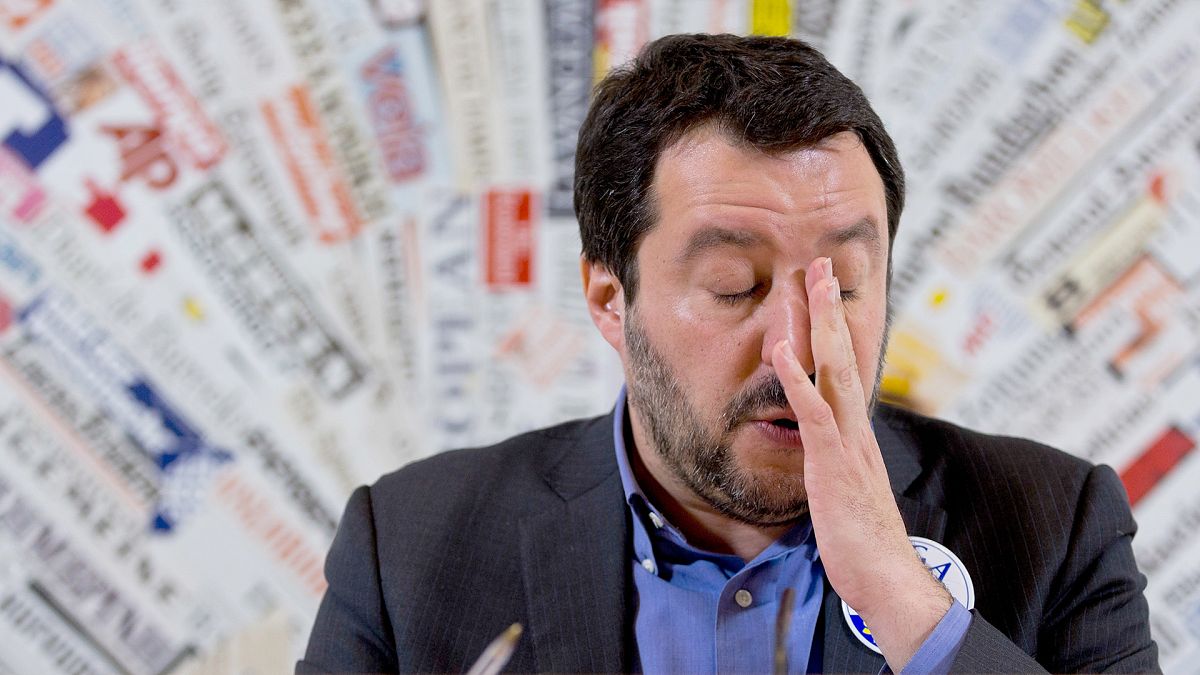Italian prosecutors in Palermo have accused Matteo Salvini, the then-interior minister of Italy and leader of the far-right Lega party, of alleged kidnapping for his decision to leave a migrant rescue ship stranded at sea for 19 days in 2019. Salvini’s refusal to allow more than 100 migrants to land in Lampedusa and his implementation of a “closed ports” policy during his time in office have now resulted in Sicilian prosecutors calling for a six-year prison sentence for him. If convicted, Salvini could be barred from holding government office, affecting his current position as deputy premier and transport minister in Prime Minister Giorgia Meloni’s right-wing administration.
During the 2019 standoff, some migrants onboard the charity ship Open Arms threw themselves overboard in desperation, leading to international outcry and a court order eventually allowing the remaining 89 individuals to disembark in Lampedusa. Salvini justified his actions by stating that defending borders from illegal immigrants is not a crime, and reiterated his strong stance on immigration in a social media video statement. Salvini’s lawyer, Giulia Bongiorno, is set to present a defence plea in Palermo in the coming days, with a potential sentence expected by the end of the month. Meloni and members of her government have stood by Salvini, emphasizing the importance of defending national borders and criticizing the legal action against him.
Salvini’s indictment comes amidst a series of challenges for Prime Minister Meloni’s government, including a scandal involving the resignation of former Italian Culture Minister Gennaro Sangiuliano due to alleged misuse of public funds. Additionally, tensions have arisen within the coalition government over proposed citizenship law reforms, with disagreements between Meloni’s Brothers of Italy party and coalition partners, the centre-right Forza Italia party, led by Antonio Tajani. The nomination of Raffaele Fitto as the European Commissioner is also facing scrutiny, with potential challenges expected during parliamentary hearings prior to his approval.
The leader of the centre-left PD party, Elly Schlein, criticized Meloni’s public support for Salvini, emphasizing the importance of respecting the separation of powers between the executive and judicial branches. Schlein stressed that commenting on ongoing trials undermines the principles of institutional respect and independence of the judiciary. The trial against Salvini represents a critical moment in Italian politics, further highlighting the polarizing debate over immigration and border control within the country.
Salvini’s defence team will have an opportunity to present their case in Palermo on October 18th, with a verdict expected by the end of the month. As Salvini faces potential legal consequences for his actions as interior minister, the outcome of the trial could have significant implications for the future of Italian politics and the ongoing debate surrounding immigration policies in the country. Despite the challenges faced by Meloni’s government, Salvini’s trial remains a focal point of international attention and scrutiny, reflecting broader concerns about human rights, migration, and the rule of law in Europe.










